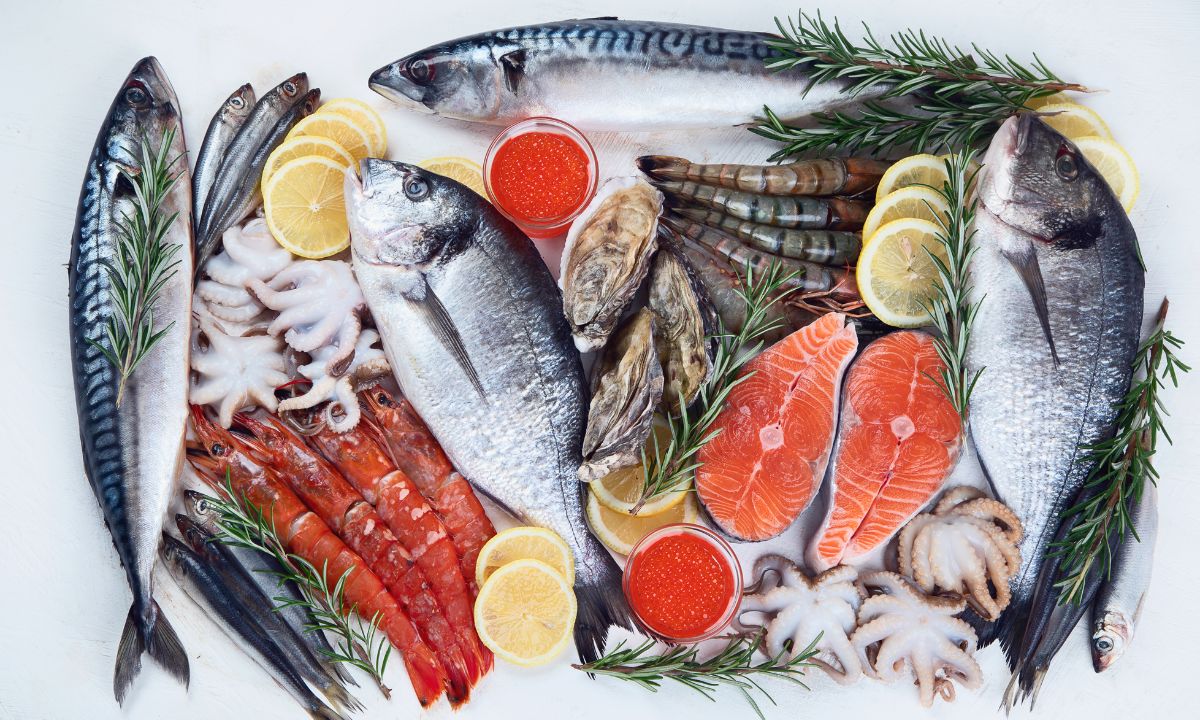Seafood is a delicious and healthy source of protein, healthy fats, vitamins, and minerals. It is widely recognized for its nutritional value and health benefits. In this article, we will explore the benefits of incorporating seafood into your diet and how it can help you maintain a healthy lifestyle.
Introduction
Seafood is a versatile and delicious food that is enjoyed by millions of people worldwide. It includes various types of fish, shellfish, and other aquatic animals. Seafood is a rich source of protein, healthy fats, vitamins, and minerals that are essential for maintaining good health.
Nutritional Value of Seafood
Seafood is low in calories and high in nutrients, making it an excellent food choice for maintaining a healthy lifestyle. It is a rich source of protein, healthy fats, omega-3 fatty acids, vitamins, and minerals.
Protein
Seafood is an excellent source of high-quality protein, which is essential for building and repairing muscles and tissues. It is a great alternative to red meat, which is high in saturated fat and can increase the risk of heart disease.
Healthy Fats
Seafood is a rich source of healthy fats, including omega-3 fatty acids, which are essential for brain function and reducing inflammation in the body. Omega-3 fatty acids can help reduce the risk of heart disease, stroke, and other chronic diseases.
Vitamins and Minerals
Seafood is a rich source of vitamins and minerals, including vitamin D, vitamin B12, iodine, and selenium. These nutrients are essential for maintaining good health, and many people do not get enough of them in their diets.
Health Benefits of Seafood
In addition to its nutritional value, seafood has many health benefits that can help you maintain a healthy lifestyle.
Reduces the Risk of Heart Disease
Seafood is rich in omega-3 fatty acids, which have been shown to reduce the risk of heart disease. Omega-3 fatty acids can lower blood pressure, reduce inflammation in the body, and improve cholesterol levels.
Improves Brain Function
Omega-3 fatty acids are essential for brain function and can improve memory and cognitive function. Eating seafood regularly can help improve brain function and reduce the risk of cognitive decline.
Reduces Inflammation
Seafood is rich in anti-inflammatory compounds, which can help reduce inflammation in the body. Chronic inflammation is linked to many chronic diseases, including heart disease, diabetes, and cancer.
Promotes Healthy Skin
Seafood is rich in nutrients that are essential for healthy skin, including vitamin A, vitamin C, and omega-3 fatty acids. These nutrients can help reduce inflammation in the skin and improve skin health.
Choosing Healthy Seafood
When choosing seafood, it is essential to choose healthy and sustainable options.
Wild-Caught vs. Farm-Raised
Wild-caught seafood is generally a better option than farm-raised seafood. Wild-caught seafood is generally lower in contaminants and higher in omega-3 fatty acids.
Mercury Levels
Some types of seafood are higher in mercury than others. It is essential to choose seafood that is low in mercury, especially for pregnant women, nursing mothers, and young children.
Sustainability
It is important to choose seafood that is sustainable and harvested responsibly. Overfishing and unsustainable fishing practices can have a negative impact on the environment and the future of the seafood industry.
Conclusion
Seafood is a delicious and healthy food that is packed with nutrients and health benefits. It is an excellent source of protein, healthy fats, vitamins, and minerals that are essential for maintaining good health. When choosing seafood, it is important to choose healthy and sustainable optionsand to be mindful of mercury levels, especially for at-risk groups such as pregnant women and young children. By incorporating seafood into your diet, you can reap the benefits of improved heart health, brain function, skin health, and reduced inflammation.
FAQs
Q: How much seafood should I eat?
A: It is recommended that you eat at least 2-3 servings of seafood per week, each serving being around 3-4 ounces.
Q: What are some examples of sustainable seafood options?
A: Some examples of sustainable seafood options include wild-caught Alaskan salmon, Pacific sardines, and Atlantic mackerel.
Q: What are the best ways to prepare seafood?
A: Seafood can be prepared in a variety of ways, including grilling, baking, poaching, and broiling. It is important to avoid deep-frying, as this can negate some of the health benefits of seafood.
Q: Can I still eat seafood if I am allergic to shellfish?
A: Yes, you can still eat seafood if you are allergic to shellfish. There are many types of seafood that are not shellfish, including salmon, trout, and tuna.
Q: Is it safe to eat sushi or raw seafood?
A: It is generally safe to eat sushi or raw seafood, as long as it has been properly prepared and stored. However, pregnant women, nursing mothers, and young children should avoid raw seafood due to the risk of foodborne illness.
